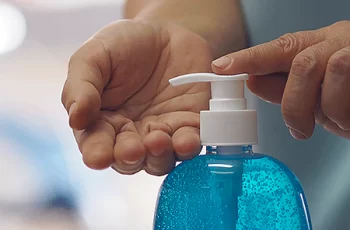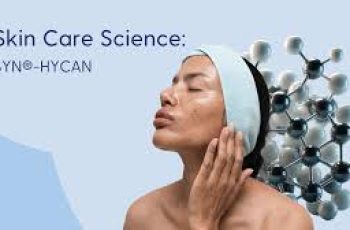
What Are Natural Moisturising Factors (NMF) and Why Are They Essential for Healthy Skin?
Our skin is truly remarkable — it’s the largest organ of the body and undoubtedly one of the hardest working.
It acts as the first line of defense against a barrage of daily environmental challenges, from the harsh rays of the sun and pollution to bacteria and irritants.
Beyond these external stressors, our skin also responds visibly to internal factors such as hormonal changes, stress, fatigue, and illness.
Considering all this, it’s no surprise that our skin often shows signs of wear and tear over time.
One of the key players in maintaining skin health and resilience is something called the Natural Moisturising Factor, or NMF.
You may have heard this term before in skincare circles, but what exactly is NMF, and why is it so important?
In this article, we will dive deep into the science behind Natural Moisturising Factors, explore how they work to keep your skin hydrated and youthful, and discuss what happens when your skin lacks sufficient NMF
— plus how modern skincare formulations help fill the gap.
What Is Natural Moisturising Factor (NMF)?
Natural Moisturising Factor is a collective term for a group of molecules naturally produced by the skin to maintain hydration and support the skin’s barrier function.
These molecules reside in the stratum corneum, which is the outermost layer of the epidermis — the skin’s surface layer.
The primary role of NMF is to attract and retain water within the skin cells, preventing dryness and keeping the skin soft and supple.
This moisture retention is critical because the stratum corneum acts as a barrier, protecting the body from harmful environmental factors while simultaneously regulating water loss.
Interestingly, NMF is not a single substance but a complex blend of water-soluble compounds, including:
Amino acids (breakdown products of skin proteins like filaggrin)
Urea
Lactic acid and other organic acids
Pyrrolidone carboxylic acid (PCA)
Sugars
Electrolytes
Each of these components plays a specific role in ensuring the skin remains hydrated and functions optimally.
How Does NMF Benefit Your Skin?
The Natural Moisturising Factor contributes to skin health in several crucial ways:
1. Maintaining the Skin’s Protective Barrier
Your skin’s protective barrier is vital to keep out harmful substances like bacteria, pollutants, and free radicals. NMF helps keep this barrier hydrated and intact.
When the skin barrier is compromised — which can happen due to aging, environmental damage, or harsh skincare products — it becomes less effective at protecting the skin.
This leads to a cascade of problems, including dryness, irritation, inflammation, and increased vulnerability to infection.
A well-hydrated stratum corneum, supported by sufficient NMF, ensures the skin remains resilient against external aggressors.
This hydration also helps maintain a smooth, even texture and reduces the visibility of fine lines, wrinkles, and pigmentation.
2. Preserving Skin Elasticity and Youthfulness
One of the hallmarks of youthful skin is its plumpness and elasticity — qualities that start to diminish with age.
Elastin and collagen production decline over time, making skin more prone to sagging and damage. NMF indirectly supports skin elasticity by ensuring the cells in the epidermis remain well-hydrated. Moisturized skin cells are more flexible and less likely to crack or become damaged.
By sustaining adequate hydration, NMF contributes to a skin appearance that is more vibrant, plumped, and resilient — in other words, a more youthful look.
3. Facilitating Natural Exfoliation and Cell Renewal
The skin naturally sheds dead cells through a process called desquamation, which typically occurs every 28 to 30 days. This process ensures fresh, healthy skin cells replace the older, outer ones.
However, the enzymes responsible for breaking down the connections between dead skin cells — known as hydrolytic enzymes — need an optimal environment to work effectively.
NMF helps activate these enzymes, enabling the skin to slough off dead cells efficiently.
When this process slows down or is disrupted, dead cells accumulate, leading to issues such as dry patches, dullness, blackheads, and acne.
Keeping NMF levels sufficient ensures the skin retains its natural glow and smooth texture.
NMF and Skin pH Balance
Another essential function of Natural Moisturising Factors is maintaining the skin’s acid mantle — a slightly acidic layer on the skin’s surface with a pH typically around 4.5 to 5.5.
This acidity plays a vital role in:
Preventing the growth of harmful bacteria and fungi
Supporting the skin’s natural microbiome (beneficial bacteria)
Regulating enzyme activity involved in skin renewal
NMF components such as lactic acid contribute to this acidic environment.
When skin pH becomes too alkaline — often due to excessive washing or harsh products — the barrier weakens, leading to irritation, dryness, and increased risk of infection.
Thus, NMF acts as a balancing agent, helping to maintain the skin’s optimal pH and protective functions.
What Happens When Your Skin Lacks NMF?
As we age, or when the skin barrier is damaged, the production of Natural Moisturising Factors decreases. This reduction can result in:
Dryness and Dehydration: Without enough NMF, the skin loses its ability to attract and retain moisture, leading to rough, flaky, or tight-feeling skin.
Increased Sensitivity: Dry skin is more prone to irritation and inflammation.
Visible Signs of Aging: Loss of hydration makes fine lines and wrinkles more noticeable.
Compromised Barrier: A weak barrier invites environmental damage and increases the risk of infection.
Many skin conditions, including eczema, psoriasis, and xerosis (extremely dry skin), are associated with deficiencies in NMF components.
How Can Skincare Help Restore NMF?
Fortunately, modern skincare formulations often include ingredients that mimic or replenish the Natural Moisturising Factors in the skin. These include:
Hyaluronic Acid: A powerful humectant that attracts and holds water, often referred to as the “gold standard” for hydration.
Urea: Naturally present in the skin, urea helps bind water and softens rough skin. It also supports enzymatic activity in desquamation.
Lactate: Derived from lactic acid, it helps maintain skin pH and hydration.
Glycerin: Another widely used humectant that draws moisture into the skin.
When used in well-formulated skincare products, these ingredients can effectively compensate for diminished NMF levels, restoring moisture, improving texture, and strengthening the skin barrier.
Important Considerations When Using NMF-Related Ingredients
While ingredients like urea and lactate naturally occur in the skin, they can be potent when applied topically in synthetic formulations. To avoid irritation, dryness, or even burns:
Always follow product usage instructions carefully.
Start with a small amount or lower concentration to assess your skin’s reaction.
Perform a patch test 24 hours before applying new products to your face.
Consult a dermatologist if you have sensitive skin or underlying skin conditions.
The Incredible Resilience of Your Skin
It’s truly awe-inspiring how much work your skin does every single day.
From shielding your internal organs to adapting to constant environmental and internal changes, your skin is a dynamic, living organ with a complex defense system — and the Natural Moisturising Factor is a critical part of this.
Thanks to ongoing scientific research and innovative skincare formulations, we now have access to products that help support and restore our skin’s natural hydration systems.
Although nothing beats good overall health habits — like protecting your skin from excessive sun, avoiding smoking, and maintaining a balanced diet — using products that replenish NMF can be a game-
changer for keeping skin glowing, resilient, and youthful-looking.
Of course, nothing beats a vacation to a tropical island to give your skin some well-earned rest, but until then, understanding and supporting your skin’s Natural Moisturising Factor is one of the best ways to help it thrive in our busy, modern world.


